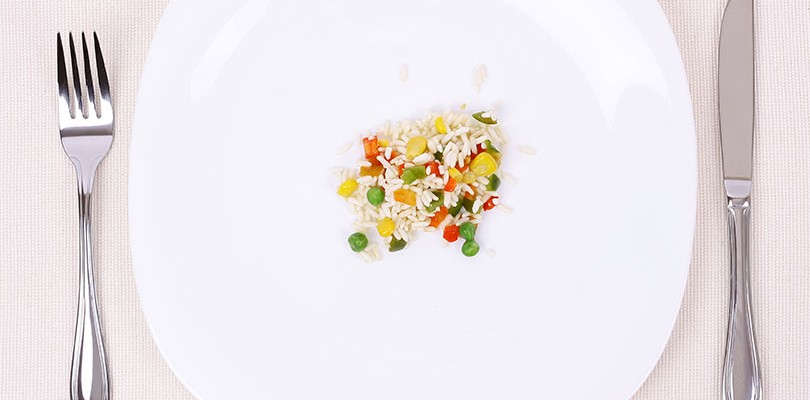
Photo Credit: opolja / istockphoto.com
4. A Limited Diet Is Best for IBS
It may sound strange, but you probably don’t need to modify your diet too much (if at all) to manage your IBS. If a food allergy is at play, it’s important to stay away from that ingredient, but the majority of people don’t need a special diet to cope with their symptoms.
Trigger foods like caffeine, alcohol, and cruciferous veggies are problematic, so be sure to track and avoid them. However, distilling your diet to only a few “safe” foods can create all sorts of other problems, particularly if a microbe imbalance is partly to blame for your IBS. Instead, aim for a balanced diet rich in whole foods (that agree with you), and low in additives and preservatives — this sort of menu will be easier for your body to digest.
Resources
EverdayHealth (Common IBS Misconceptions)IBS Treatment Center (4 Common Misconceptions about Irritable Bowel Syndrome)AboutHealth (Top 10 Myths About Irritable Bowel Syndrome)IFFGD (IBS in Men: A Different Disease?)Mayo Clinic (Colon Cancer/ Risk Factors)IBS is a digestive condition that causes gas, constipation, or bloating. So, what causes IBS bloating? Learn about the possibilities here.







